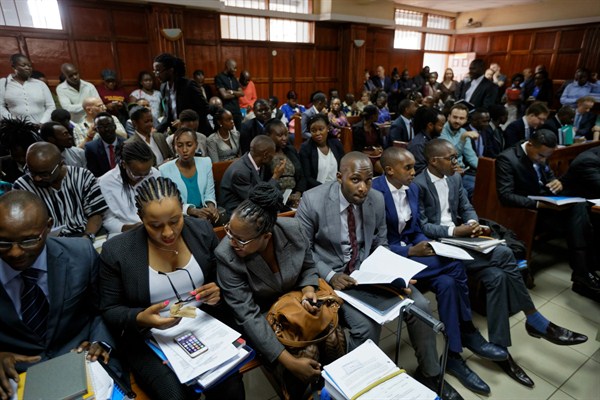In dozens of African countries, laws criminalizing same-sex sexual acts are among the more pernicious holdovers from the colonial era. Even as LGBT rights activists have made considerable gains in securing access to health services and combating specific human rights abuses, decriminalization has remained largely out of reach.
Yet in the coming months, judges in two African capitals thousands of miles apart are expected to rule on legal challenges that would help break this deadlock and, in the process, go a long way toward transforming the judiciary from a source of repression into an ally. The cases, in Kenya and Botswana, reflect growing enthusiasm for the use of so-called strategic litigation, or litigation intended to advance broader social goals, to promote the human rights of sexual minorities—an approach that has already yielded subsidiary victories in both countries.
But regardless of how the courts decide, the tactic comes with risks. And in a region where anti-LGBT sentiment has long been championed by political and religious leaders and endorsed by large swaths of the public, there are limits to what even the friendliest judges can accomplish when it comes to curbing discrimination.

